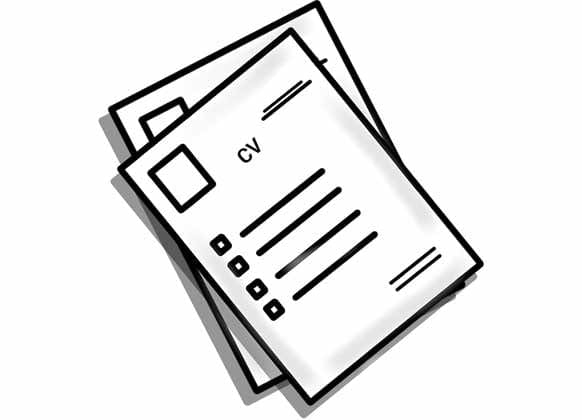It’s been more than 200 days since Boris Johnson announced initial lockdown measures. While certain measures have since been lifted or adapted, there has been a significant impact on businesses of all types, which has left small business owners feeling increasingly overwhelmed, with many in a state of burnout.

To help people avoid burnout, maintain their health, and increase productivity, Tide collaborated with strategic business coach Emma Mills-Sheffield to discuss how we can learn to properly prioritise, how to achieve the right work-life balance, and how to finally fight distractions.
Strategic business coach Emma Mills-Sheffield commented:
“We were experiencing trauma and a grief cycle at beginning of lockdown, whereas now we are in another phase, so it is important to create balance in our lives, as we can burnout too easily. People are working longer hours, which can’t carry on indefinitely and will eventually reach a peak. With conflicting priorities and an overwhelm of stuff that has to be done, and it’s really hard to know what to prioritise, and how to be productive.
“Productivity is about more than just hard work – relentless hard work can easily lead to burnout, and this can cause a lack of accuracy in your work. Learning to work smarter, not harder, is key! For example, we can achieve much more during shorter chunks of well-planned, well-thought out work than hours and hours of distracted low-level working”.
Emma’s top tips include:
- Have a to-do list
· To-do lists give us a focus – plan for the day ahead, or, if you prefer, do it in advance for the next day. However, we typically don’t prioritise to-do lists, and this can be an issue. Rather than putting the easy things first, work out your priorities and start the to-do list from there. Ideally give yourself one strategic task a day. Breaking down big tasks into sub-pieces can also help. For tasks that don’t have value (that you don’t want to do, or don’t personally need to do), delegation and outsourcing can help. Prioritise the important strategic tasks so that you can focus on the tasks that you love doing and need to do, and be pragmatic about this.
1. Learn to say no
· Saying no can be empowering – if it’s not something that you can make a priority, say no, delegate, or outsource. Understanding your long-term goals can also help you to know what your priorities are.
2. Reduce distractions
· Turning off alerts and notifications can help your focus, but no doubt there will be some apps or platforms that you need to access throughout the day for various reasons. Be critical of your needs and specific issues around apps and platforms, and mute accordingly.
3. Time blocking into bite-sized chunks
· Chunk your time into tangible and controllable pieces, blocking in time for strategy, admin, and business, but also for yourself and others. Block in time for your most important tasks first, then you know how much time you have left for everything else. Technology can help you, but only if you control it. Also, be intentional with each and every task – if you’ve blocked in family time, don’t answer that work email!
4. Work with (not against) your energy levels
· Work out when you’re most energetic and productive and plan in important tasks during these times. This will vary person to person, but there is no benefit to working against your energy levels.
5. Have an accountability buddy
· Having a human to answer to, and not an app or programme, can help you to stay focused and productive. For example, try setting weekly, fortnightly, or monthly targets, and then communicate these to your buddy. Then, be sure to update and challenge each other regularly on if you have met your targets or not. This accountability makes you take responsibility for your actions, which can motivate you to ensure you reach your set goals in order to avoid an uncomfortable conversation of having to justify your failure.
6. Look after yourself
· Make sure you take time off to relax. Sleep is massively important, and we underestimate it. Also make sure you are giving yourself time to stay in touch with loved ones, alongside the priorities in your professional life. Eating well, exercising, and taking time out can all help us to avoid burnout – having a work/life balance is key, particularly from a wellbeing and mental health perspective!
Emma continued:
“Once you have worked on the above points, you can be more productive without fear of burning out. It can also be useful to ask ourselves what we can control. Out of all the things you are concerned about, there are only a certain number that you have influence over, and typically an even smaller number than you can control. Prioritise and take an active part in the things that you can control and try not to worry about the things that you can neither control nor influence”.
Sarah Young, VP of Member Engagement at Tide, added:
“The pandemic and its various stages of lockdown has had, and continues to have, a significant impact on businesses of all types. Even during ‘perfect’ economic conditions, no business is guaranteed to succeed, so it’s increasingly common for small business owners to feel overwhelmed and struggle with their productivity on a daily basis, and this is true now more than ever, given the current situation.
“To function at our best, it is important to be able to recognise when we are reaching a state of burnout and do our best to avoid it. With Emma’s tips, we hope that people can maintain a level of productivity, whilst avoiding burnout and the exhaustion and overwhelm that comes with it”.
For more information, visit: https://www.tide.co/blog/productivity-wellbeing/masterclass-be-productive-avoid-burnout/




